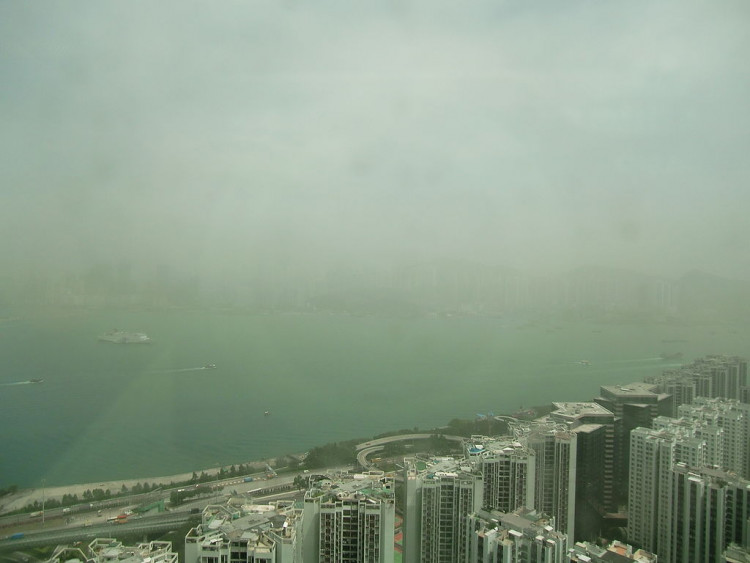On Monday, a toxic cloud hovered in Hong Kong which poses a serious health risk to three towns in the New Territories. Tuen Mun, Yuen Long, and Tung Chung's Air Quality Health Index (AQHI) was 10+ - which is already considered the highest level and falling in the serious health category.
The AQHIs alert the public regarding air pollution's short-term risk and being reported on a scale of 1 to 10, as well as 10+. They are grouped into five categories according to health risk - severe, very high, high, moderate, and low.
In the statement released by the Environmental Protection Department, Hong Kong has been severely affected by air mass with higher background pollutants PM10 and PM2.5 concentrations - particularly in ozone. The concentration of PM10 (tiny particles can go deep into the lungs) was 121.3mcg, while PM2.5 (a major concern in people's health when in high level) was 67.1mcg.
As of 4 pm last Monday, Tuen Mun's hourly concentration of ozone increased by up to 264.4 micrograms per cubic meter and 96.8mcg for nitrogen dioxide. Hong Kong Island and Kowloon also had poor air quality, with an index of 7 - falling in the category of high health risk, as per the South China Morning Post.
Meanwhile, light wind is stopping the dispersion of air pollutant and the sunshine is enhancing photochemical smog activity and the formation of ozone and fine particulates - leading to high pollution in the Pearl River Delta region. The high level of ozone also prompted nitrogen dioxide formation, specifically in parts of the urban areas and at the roadside.
The Hong Kong Observatory noted winds will intensify from the east, as well as one or two rain patches across the region in the middle and latter parts of this week. The pollution level is expected to remain higher than normal until the wind strengthens throughout the region.
Due to high health risk category, elderly, children, and those who have respiratory or heart diseases are advised to limit the time they spent outdoors and avoid physical exertion. The general public, on the other hand, had also been advised to reduce time staying outdoors - particularly in places with heavy traffic.
Since the effects of air pollutants differ in every individual, those who are experiencing discomfort should immediately seek advice from health care professionals. A green group previously said that Hong Kong residents aren't aware of the health risk brought by poor air quality even though there had been already evidence linking such pollution to certain diseases.






